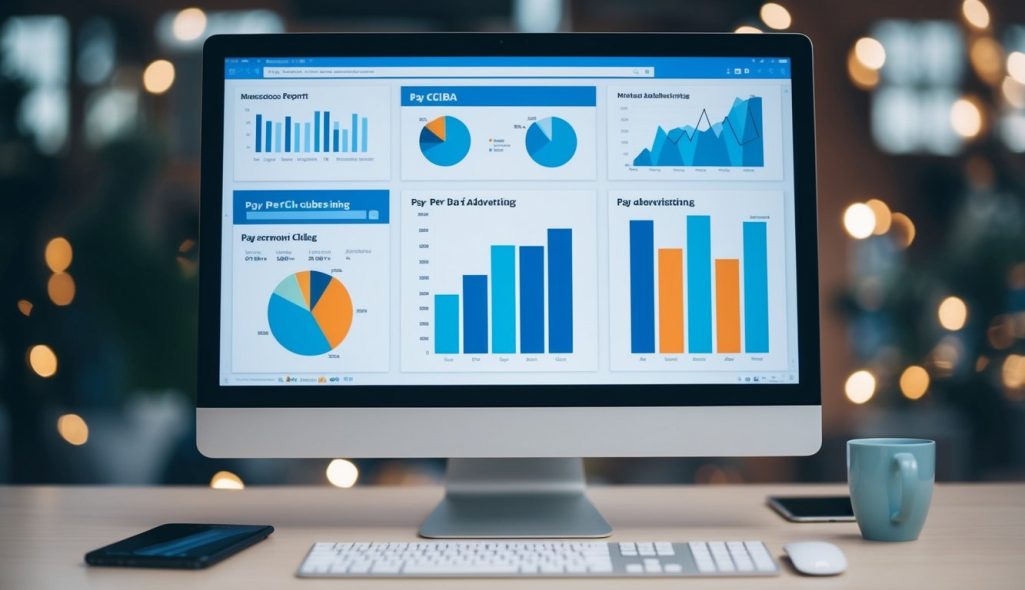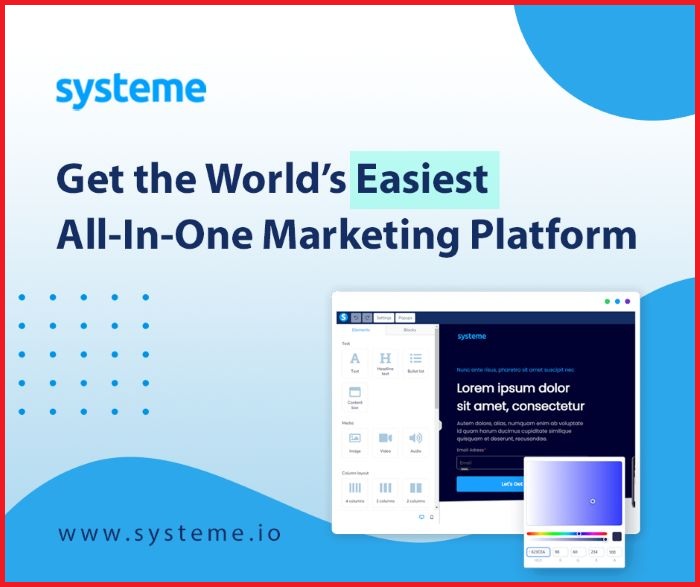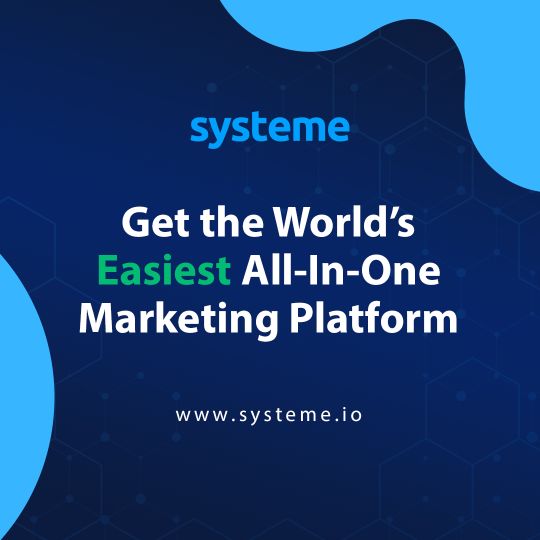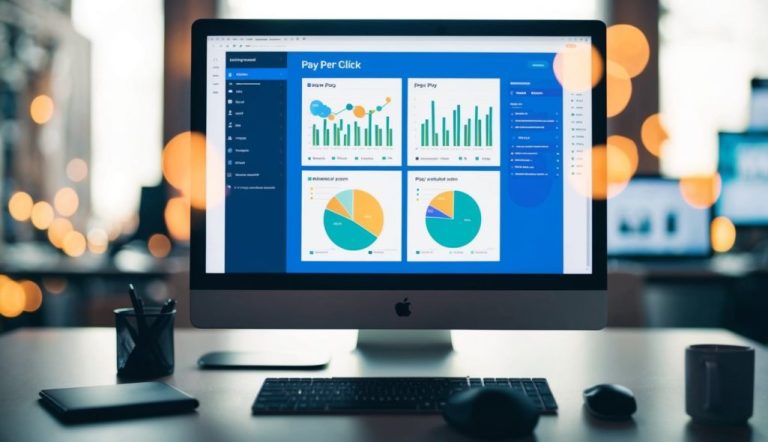Pay-per-click (PPC) advertising can be a game-changer for your business, helping you reach the right audience efficiently. The best PPC software allows you to create, manage, and optimize your ad campaigns easily, increasing your return on investment. Choosing the right tool can make managing campaigns less time-consuming while driving better results.

When selecting PPC software, consider key features such as automated bidding, keyword management, and analytics capabilities. Each of these can significantly impact the success of your campaigns. Many platforms offer these features, enabling you to streamline tasks and focus on strategy rather than manual adjustments.
For agencies managing multiple clients, selecting the right software is vital. Look for tools that offer robust client management features and top-notch security to ensure reliability and trust.
Key Takeaways
- Choose PPC software with automated and analytic features.
- Security is essential for reliable PPC campaigns.
- Good PPC tools improve ROI by optimizing ad strategies.
Understanding PPC Software
PPC software plays a crucial role in managing and optimizing PPC campaigns. By automating tasks and analyzing data, it enhances the effectiveness of online advertising strategies. Exploring its types and benefits can help you understand how to improve your digital marketing efforts.
The Role of PPC Software in Digital Marketing
PPC software is vital for effective digital marketing. It helps you manage pay-per-click advertising by automating various tasks. This includes bid management, ad testing, and performance tracking.
Managing campaigns manually can be time-consuming and complex. PPC software simplifies this by providing tools that enable precise control over your campaigns. These tools can help you analyze performance and adjust strategies to increase ROI.
Using it, you can easily monitor keyword performance and allocate your budget better. As a result, it’s an essential tool for businesses looking to stay competitive in online advertising.
Types of PPC Software
There are different types of PPC software, each serving specific functions. Keyword research tools help identify effective keywords for your campaigns, while bid management software automates the bidding process to ensure cost-effectiveness.
Ad testing tools allow you to experiment with different ad creatives and formats. This helps in optimizing ad performance. Additionally, analytics tools provide insights into your campaigns, helping you understand customer behavior and conversion rates.
Comprehensive platforms, like Semrush, offer multiple functions in a single interface. Choosing the right type depends on your marketing needs and budget.
Benefits of Using PPC Software
Using PPC software offers several benefits that can enhance your advertising efforts. It saves time by automating tasks, allowing you to focus on strategic decision-making. Automation also reduces human error in complex processes like bidding and ad placements.
The software provides detailed analytics, enabling better data-driven decisions. You gain insights into ad performance, helping you refine your campaigns for better results. It also improves targeting, ensuring your ads reach the right audience.
Cost-efficiency is another benefit, as it helps optimize ad spends, maximizing your return on investment. These advantages make PPC software a valuable asset in the digital marketing landscape.
Key Features to Look for in PPC Software
When choosing PPC software, certain features can greatly enhance your advertising efforts. Focus on analytics, budget controls, campaign strategies, bid systems, and integration capabilities to make informed decisions.
Analytics and Reporting Capabilities
Effective PPC software provides detailed analytics and reporting tools. These features help you understand campaign performance by tracking metrics such as click-through rates, conversion rates, and return on investment. Look for software offering customizable dashboards and scheduled reports. Visualization tools enhance data comprehension, making it easier to identify trends and adjust strategies. Access to in-depth data analysis helps refine future campaigns and ensures your advertising efforts are aligned with business goals.
Budget Management Tools
Budget management tools are crucial for controlling ad spend and maximizing efficiency. Key features include real-time budget monitoring, alert systems for spending limits, and the ability to allocate funds across different campaigns easily. These tools provide insights into where your money goes, allowing you to optimize spending for better results. Balancing cost with expected returns ensures that you allocate resources effectively without overspending.
Campaign Planning and Optimization
Strong campaign planning and optimization features are essential. These capabilities allow for precise targeting, keyword management, and ad scheduling. Look for software that provides A/B testing tools and insights for refining ad content based on performance data. The goal is to enhance audience engagement and improve conversion rates by continuously adjusting your strategy. Continuous optimization leads to more effective campaigns that better meet your objectives.
Bid Management Systems
Bid management systems help automate the bidding process, ensuring you get the most value from your ad spend. These systems use algorithms to adjust bids based on performance metrics and competition levels. Automation reduces manual efforts and helps maintain a competitive edge by adapting in real-time to changes in the ad marketplace. Effective bid management systems are crucial for achieving efficient ad placement and cost savings.
Integration and API Access
The ability to integrate with other platforms through API access is vital. Seamless integration enhances data flow between tools, improving decision-making and strategy formulation. Look for software that offers strong API support, allowing connections with analytics platforms, CRM systems, and other marketing tools. This interoperability facilitates comprehensive marketing strategies, streamlining operations, and providing a holistic view of your campaigns’ impact across various platforms.
Evaluating PPC Tools for Different Platforms
When choosing PPC tools, it’s crucial to focus on how each tool supports specific platforms like Google, Amazon, and Meta. Each platform has unique requirements and using the right tool can significantly enhance your advertising efforts.
Tools for Google Search Ads
For managing Google Search Ads, consider Google Keyword Planner. This tool integrates seamlessly with Google Ads, allowing you to create and manage campaigns efficiently. It provides valuable insights into search volume and keyword competitiveness, helping you refine your ad targeting.
Another option is Semrush. Known for its comprehensive digital marketing capabilities, Semrush offers a robust PPC toolkit. It enables keyword research, competitor analysis, and campaign optimization. This makes it a valuable tool for those serious about maximizing their Google Ads performance.
Software for Amazon Advertising
Advertising on Amazon requires specialized tools to handle the platform’s unique bidding and inventory features. Ad Badger is tailored for businesses focused on Amazon’s ecosystem. It automates keyword management, optimizes bids, and offers detailed performance reports.
Channable is another effective software solution. It supports creating and managing Amazon product listings, optimizing product feeds, and monitoring ad performance. This helps you align your Amazon advertising strategies with sales goals, improving overall efficiency.
Options for Meta and Other Social Platforms
For advertising on social platforms like Meta, AdEspresso is a popular choice. It simplifies campaign creation with its user-friendly interface. You can easily create, test, and optimize multiple ad variations. The tool’s reporting capabilities also provide insights into social media ad performance, allowing for informed decision-making.
Sprout Social supports various platforms, including Meta, by offering tools for holistic social media management. It integrates ad management with other social media functions, enabling you to analyze ad success and blend it with organic content strategies.
Considering platform-specific needs is vital when selecting PPC tools. This ensures that you utilize each platform’s strengths while addressing its challenges effectively.
Leveraging Automation in PPC Software
Utilizing automation in PPC software enhances efficiency and effectiveness, helping you save time and optimize your campaigns. Explore how marketing automation, one-click optimizations, and automated competitor research can transform your approach.
Marketing Automation
Marketing automation streamlines repetitive tasks, allowing you to focus on strategy. By using automation, you can schedule ads, set budget limits, and adjust bids without manual intervention. This increases accuracy and reduces the likelihood of errors.
Automated reporting tools provide insights into campaign performance, enabling data-driven decisions. Such tools can analyze metrics like click-through rates and conversion rates, offering a detailed overview. This data helps in refining your strategies and optimizing ad spend effectively.
Using platforms like Semrush can simplify keyword research and integrate seamlessly with your PPC campaigns.
One-Click Optimizations
One-click optimizations allow you to enhance ad performance with minimal effort. By implementing machine learning, these features automatically adjust keywords, bids, and ad placements. This means you receive real-time improvements without constant manual monitoring.
Such optimizations quickly identify underperforming ads and make necessary changes. This helps in reallocating budget efficiently, directing it toward high-performing ads. Easy-to-use tools let you tweak settings with one action, saving time and effort.
Platforms like Sellozo offer powerful AI-driven capabilities for Amazon PPC, simplifying ad management through automation.
Automated Competitor Research
Automated competitor research tools monitor your competitors’ PPC strategies, providing valuable insights. They help identify keyword trends, ad copy performance, and bidding strategies used by rivals. This information is crucial for staying competitive.
These tools track changes in competitor campaigns and suggest adjustments to your PPC strategies. By targeting the right keywords and aligning your bids, you can improve your positioning and ad visibility.
Using a tool like ZonTools can continuously optimize your ads, enhancing both sales and profitability.
Selecting PPC Management Software for Agencies
Choosing PPC management software for agencies involves focusing on features tailored to agency needs, from custom report generation to intuitive client management. The right tools help streamline processes and improve communication with clients.
Agency-Specific Features
When evaluating PPC software, look for features that cater to agency operations. Tools like AgencyAnalytics offer multiple client account management and integration with various advertising platforms. This integration is crucial for efficiently handling campaigns across diverse channels. Additionally, software that supports multi-user access can enhance team collaboration. Features like budget tracking and alert systems also ensure that you maintain control over campaigns while meeting clients’ goals.
Custom Report Generation
Custom report generation is key for showcasing results to clients. The ability to create tailored reports based on specific metrics allows you to highlight campaign performance effectively. Useful tools often include drag-and-drop functionality for easy report customization and preset templates to save time. Reports should include vital data elements such as CTR, conversion rates, and ROI. Platforms like PPC Entourage provide options for generating detailed reports that reflect clients’ individual priorities, facilitating better decision-making and ongoing client trust.
Client Management and Usability
Usability is essential for efficient client management. Software with an intuitive interface allows team members to quickly adapt and manage activities without extensive training. Look for platforms with centralized dashboards that merge client data, campaign analytics, and communication tools. This setup simplifies monitoring and updating campaigns. Choosing a solution that features automated reporting and communication tools can improve the client experience, ensuring that they receive consistent updates without extra effort from your team.
Advanced Techniques and Tools
Using advanced PPC techniques can improve your ad results and efficiency. It’s important to focus on research, performance, fraud prevention, competitor analysis, and spending.
Keyword Research and Long-Tail Keywords
To target your audience effectively, keyword research is crucial. Long-tail keywords, which are specific and less competitive, can improve your click-through rate and conversion. Tools like Google Ads can help you find these keywords easily and suggest variations that may broaden your reach. Consider using platforms like Semrush, which offers comprehensive keyword analysis tools. Long-tail keywords often result in higher conversion rates and can significantly lower costs since they attract a more specific audience, enhancing your campaign’s overall effectiveness.
Ad Performance and Click Fraud Prevention
Monitoring ad performance is essential. Tools like Adalysis can help you split test ads and identify which versions work best. Make sure to invest in click fraud prevention software like CHEQ Essentials. Click fraud can drain your budget quickly, as fraudulent clicks eat away at your advertising spend without delivering real customer engagement. Tools that analyze click patterns to identify and block suspicious activity are vital to maintaining the integrity of your campaigns. Effective performance tracking and fraud prevention tools ensure your budget is spent as efficiently as possible.
Competitor Analysis and Ad Spend Tracking
Understanding what your competitors are doing can offer valuable insights into your PPC strategy. Platforms like iSpionage help you analyze competitor keywords and ads. This can reveal opportunities and gaps in your approach.
It’s also crucial to track your ad spend closely to avoid overrunning your budget. Tools such as Optmyzr are designed for managing large ad budgets, optimizing ad allocation, and ensuring that you get the most out of every dollar spent.
Keeping a close eye on competitor strategies and your own spending helps maintain a competitive edge while controlling costs effectively.
Comparing Top PPC Software
When deciding on PPC software, make sure to look at their features, pricing, user feedback, and compatibility with your current tools. Each software offers unique advantages that can benefit different marketing strategies.
Feature and Price Comparison
When comparing PPC software, look at the features and pricing offered by each platform. Tools like Optmyzr and Semrush offer automated bid management and auction insights, valuable for optimizing campaigns across platforms like Google Ads and Facebook.
Prices can vary significantly, so it’s crucial to find one that fits your budget. Acquisio offers a range of packages that cater to both small businesses and larger enterprises, making it flexible for different needs.
User Reviews and Case Studies
User feedback is a key metric to gauge the performance and reliability of PPC software. According to Capterra, some tools stand out for their user-friendly interfaces and strong support systems. Semrush has been noted for its ease of use, making it a favorite among beginners.
Real-world examples and case studies show how businesses have used these tools to achieve success. Such insights can guide you in making an informed choice.
Compatibility with Existing Digital Marketing Tools
A crucial aspect of choosing PPC software is ensuring it works well with the tools you already use. Software like SpyFu is known for its compatibility with various SEO tools, allowing seamless integration into broader digital marketing strategies.
Using tools that sync seamlessly can save time and improve efficiency. Companies like Optmyzr are designed to work with major platforms, ensuring that you can manage campaigns without needing to overhaul existing systems.
Understanding compatibility ensures that your marketing efforts are cohesive and streamlined, using resources effectively.
Security and Reliability in PPC Advertising
In the world of PPC advertising, ensuring secure transactions and dependable software is essential. You should consider both data protection measures and the reliability of the software, which includes customer support, as key factors when selecting a PPC tool.
Data Security Features
Data security is a critical aspect of PPC advertising. You should look for software that encrypts sensitive information to protect your data from breaches.
Two-factor authentication and SSL encryption are essential features that add layers of security and safeguard your information.
Consider tools that comply with data protection regulations, such as GDPR, to ensure your data handling is compliant and secure. You should also examine the privacy policies of the PPC software to understand how your data will be used and stored.
Regular security audits and updates are vital. They help in identifying vulnerabilities and patching them promptly. Some tools offer security dashboards to provide real-time monitoring, which can alert you to any suspicious activities swiftly.
Software Reliability and Support
The reliability of PPC software is crucial for maintaining seamless ad campaigns. Software should have a robust infrastructure that allows for minimal downtime, ensuring your ads run smoothly without interruption.
You should look for platforms with high uptime guarantees to prevent potential disruptions in your advertising efforts.
Equally important is customer support. Access to responsive support teams, whether via chat, email, or phone, is essential when facing technical issues.
Look for tools that offer 24/7 assistance and who have a track record of resolving issues swiftly and efficiently. You might also benefit from accessing a knowledge base or community forums that can provide additional guidance and support. This can help you troubleshoot and optimize your PPC strategies, enhancing your overall advertising success.
Future Trends in PPC Software
In the coming years, PPC software will likely focus more on AI-driven features. This includes enhanced automation for tasks like keyword selection and bid adjustments. Such automation aims to boost targeted traffic without increasing your workload.
Another trend to watch is the integration of machine learning for better PPC optimization. This technology can analyze patterns to refine ad targeting and improve ROI. By understanding user behavior more accurately, you can deliver ads that truly resonate with your audience.
Expect to see better cross-platform capabilities as well. Streamlined tools will help you manage campaigns across multiple ad platforms from one central dashboard, saving you time and resources.
Making an Informed Decision
As you select PPC software, make sure to evaluate your specific business goals. Determine what features you need, such as bulk editing, analytics, or scheduling.
A tool like PPC Entourage offers bulk optimization for Amazon ads, which might be beneficial if you focus on that platform.
Cost is another critical factor. Weigh subscription fees against potential increases in targeted traffic.
For example, a tool that charges a fee based on ad spend may offer better ROI if it significantly improves campaign performance.
Do your research by reading reviews and trying free trials when available. Comprehensive features, ease of use, and pricing should guide your decision. Seeking feedback from other users can also provide valuable insights into what you might expect from the software over time.
Frequently Asked Questions
When exploring PPC software, it’s crucial to identify the best tools for your specific needs. From solutions for managing campaigns to tools for reporting and analysis, the right software can streamline your marketing efforts and enhance effectiveness.
What software solutions are most recommended for PPC campaign management?
Several software solutions are highly recommended for managing PPC campaigns. Tools like the Keyword Magic Tool and Advertising Research found on SEMrush can help you identify effective keywords to enhance your strategy.
Which PPC tools offer the best value for Amazon advertising?
For Amazon advertising, tools that help sellers optimize their PPC efforts can be invaluable. You might explore software options for Amazon PPC management that offer unique features to boost advertising performance.
What are the top free PPC management tools currently available?
Free PPC tools can be a great resource for those starting out or on a budget. While specific names aren’t provided in the search results, look for tools that offer basic campaign management features without a cost barrier.
Which PPC reporting and analysis tools are industry leaders?
Industry-leading PPC reporting and analysis tools are vital for tracking the success of your campaigns. Comprehensive reporting capabilities help ensure that you can assess performance accurately and make informed decisions to optimize your approach.
How does PPC software streamline digital marketing efforts?
PPC software can significantly streamline your digital marketing efforts by automating routine tasks. You can expect improved efficiency in areas like keyword recognition and bid management, leading to more effective use of your advertising budget.
Is there a favored PPC platform among digital marketers for its effectiveness?
Digital marketers often favor Google Ads because it has extensive reach and robust analytics tools. Many rely on it for its ability to deliver targeted ads to a vast audience, making it a powerful tool for driving traffic and conversions.





